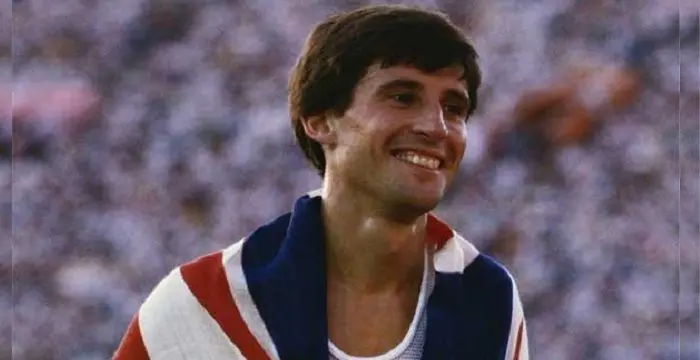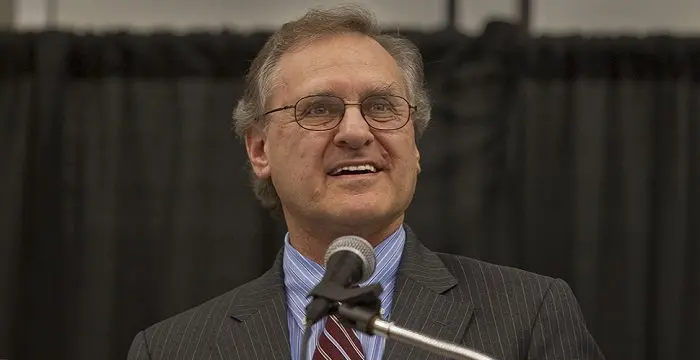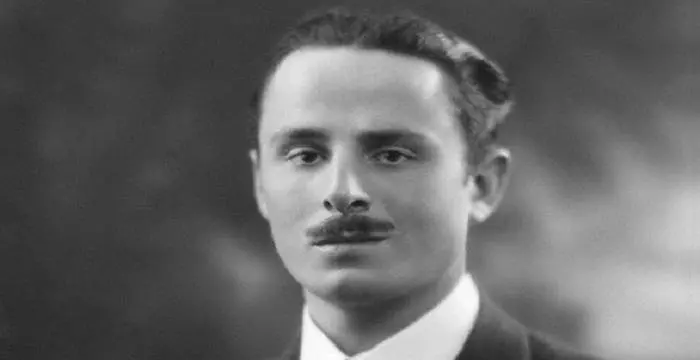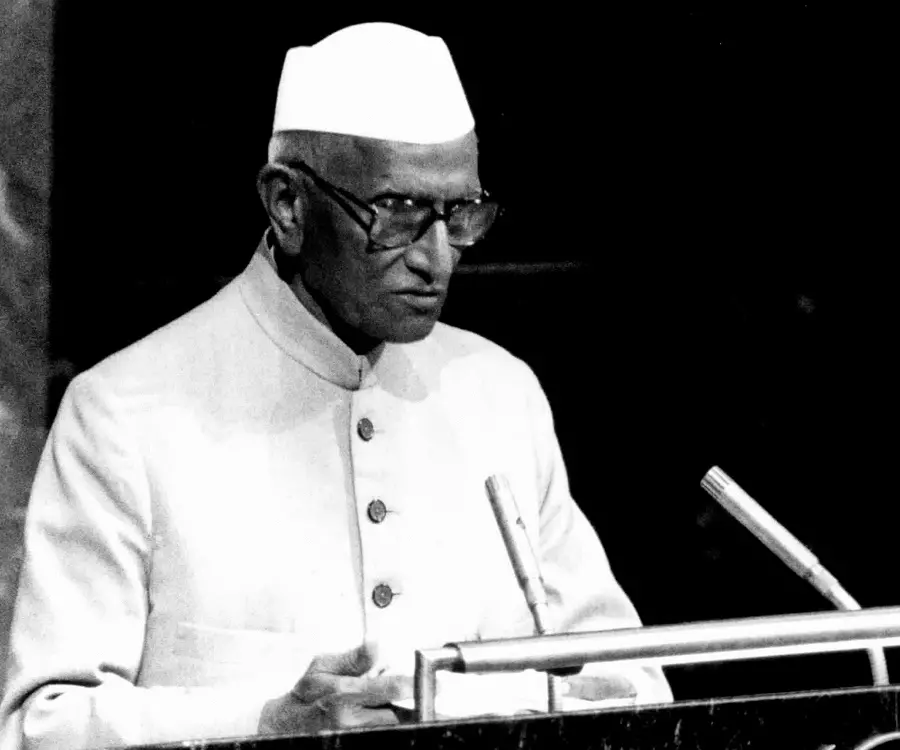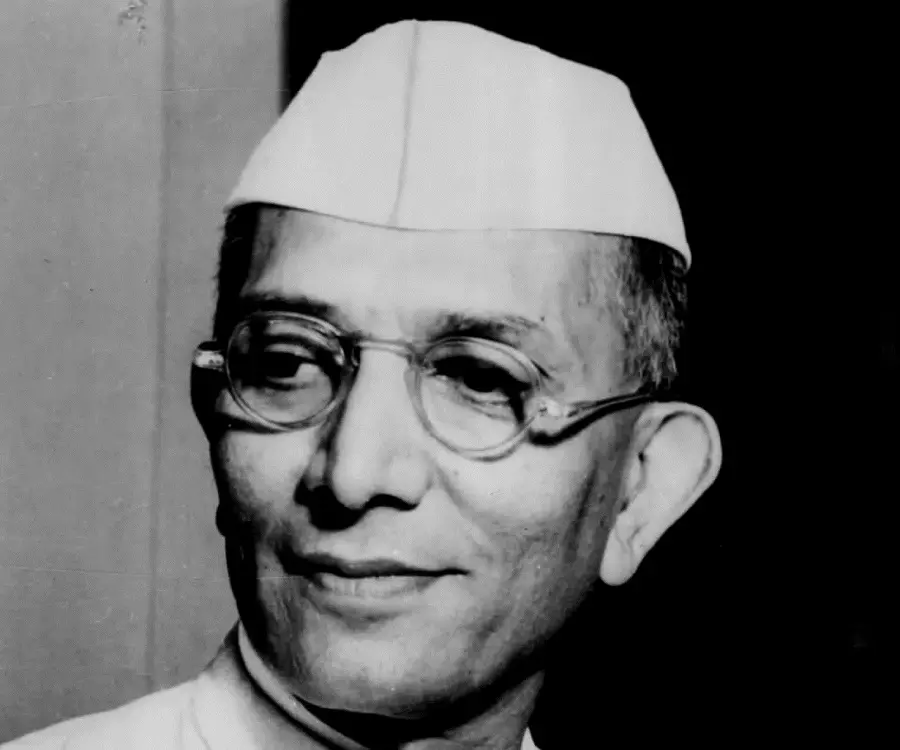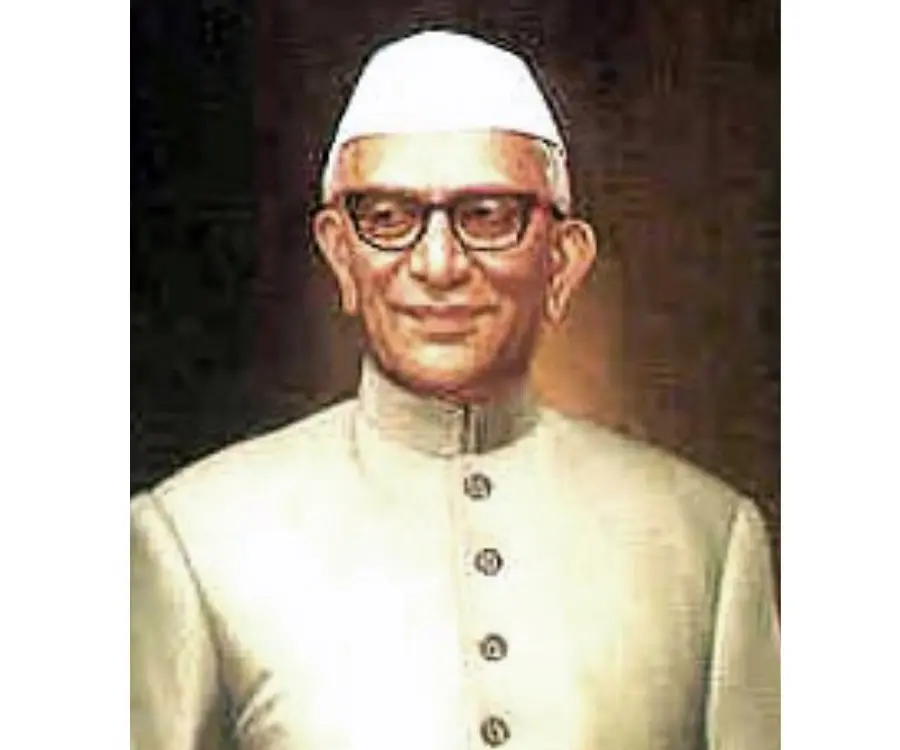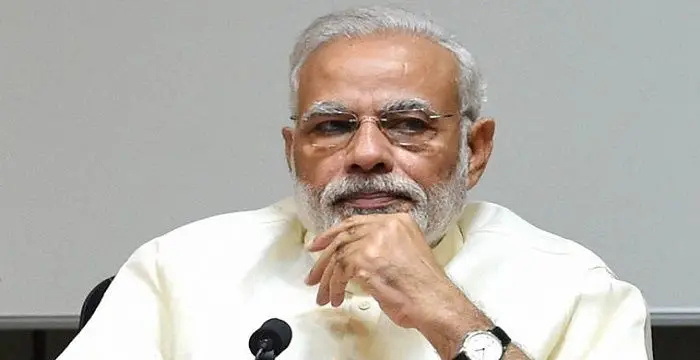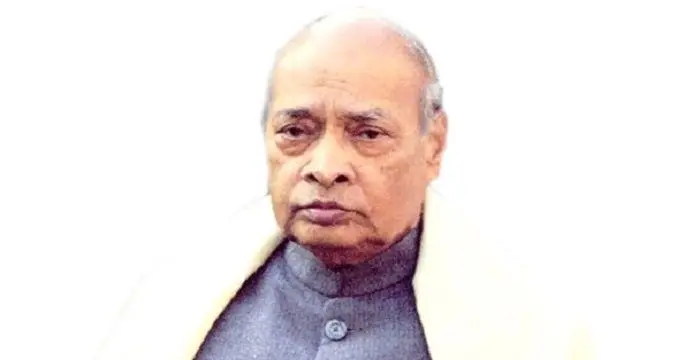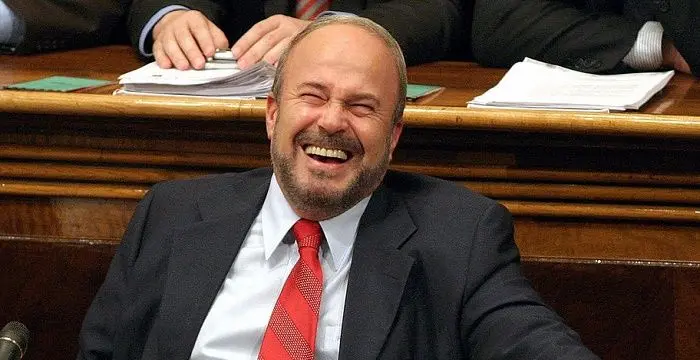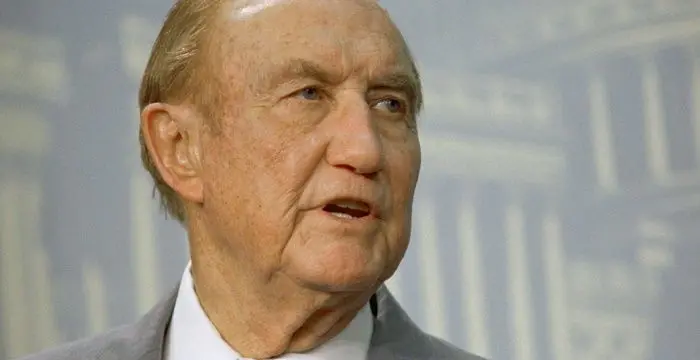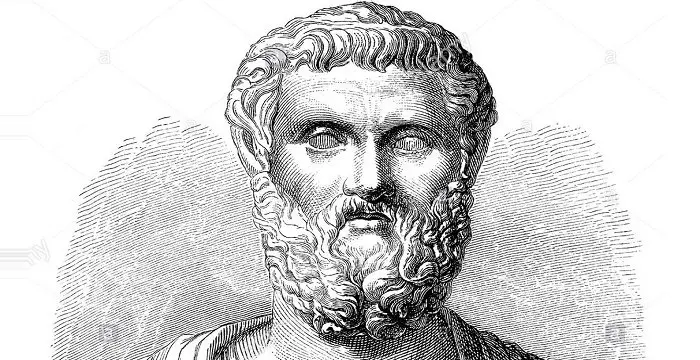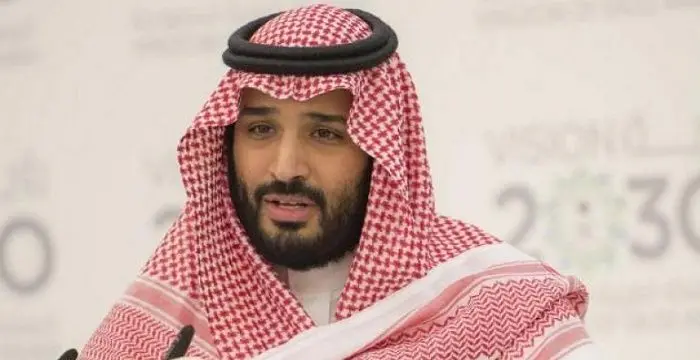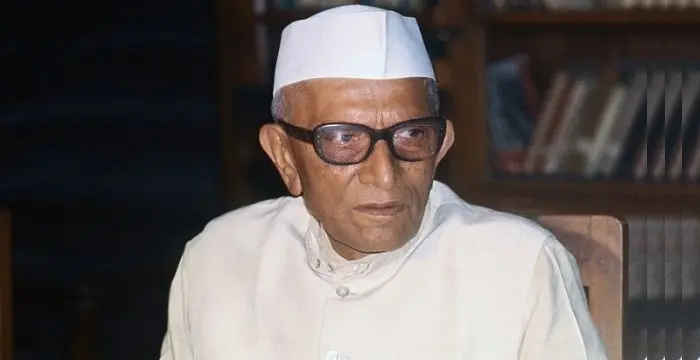
Morarji Desai - Politician, Birthday and Facts
Morarji Desai's Personal Details
Morarji Desai served as the fifth Prime Minister of India
| Information | Detail |
|---|---|
| Birthday | February 29, 1896 |
| Died on | April 10, 1995 |
| Nationality | Indian |
| Famous | Leaders, Political Leaders, Prime Ministers, Politician, Prime Minister of India |
| Spouses | Gujraben |
| Birth Place | Bhadeli, Bombay Presidency, British India |
| Gender | Male |
| Sun Sign | Pisces |
| Born in | Bhadeli, Bombay Presidency, British India |
| Famous as | Politician, Prime Minister of India |
| Died at Age | 99 |
// Famous Politician
Sebastian Coe
Sebastian Coe is a British former track and field athlete turned politician. This biography of Sebastian Coe provides detailed information about his childhood, life, achievements, works & timeline.
Stephen Lewis
Stephen Lewis is a Canadian politician, broadcaster, diplomat and professor. This biography profiles his childhood, career, works, life, achievements and timeline.
Oswald Mosley
Sir Oswald Ernald Mosley was a British politician known for his pro-fascist beliefs. This biography profiles his childhood, family, personal life, opinions, career, etc.
Morarji Desai's photo
Who is Morarji Desai?
Morarji Desai’s contribution in the freedom struggle and later as a politician is unparalleled. Starting off as civil service employee in the British regime to taking up an active role in the freedom struggle and later assuming different offices under various administrations to finally chairing the responsibility of the Prime Minister of the country, his political pursuits have scaled upwards all throughout. His deep embedded value for hard work, perseverance and truthfulness stayed with him in the different roles that he took up. Desai’s unswerving sincerity towards working for the welfare of the people of the country earned him wide reputation amongst the countrymen. While he worked in various portfolios, his contribution during his premiership is most renowned. Desai is the only Indian till date to be conferred with Pakistan’s highest civilian award, Nishan-E-Pakistan, for his infinite efforts in initiating peace between two rival countries. To know more about his life and profile, read through the following lines.
// Famous Prime Minister of India
Narendra Modi
Narendra Damodardas Modi is a prominent Indian politician and the current Prime Minister of India. This biography of Narendra Modi provides detailed information about his childhood, family life, political career, achievements, and timeline
P. V. Narasimha Rao
P. V. Narasimha Rao was an Indian politician who served as the 10th Prime Minister of India. This biography of P. V. Narasimha Rao provides detailed information about his childhood, life, achievements, works & timeline.
Childhood & Early Life
Morarji Desai was born in an orthodox Anavil Brahmin family on February 29, 1896 in Bhadeli, Valsad in Bombay Presidency. It was from his teacher father that young Morarji learned the value of hard work and truthfulness.
He attained his early education from Saurashtra the Kundla School and Bai Ava Bai High School. He pursued his graduation degree from Wilson College in Mumbai.
Career
Upon completing his education, he joined the civil services and took up the profile of a Deputy Collector in 1918, which he served for 12 years until 1930, when he resigned after being found guilty of being soft on Hindus during the 1927-28 riots.
Having lost his faith in the British administration, he gave up on his governmental duties and joined Mahatma Gandhi in the freedom struggle, and became a part of the latter’s Civil Disobedience Movement.
In 1931, he became a member of the All India Congress Committee and served as the Secretary of the Gujarat Pradesh Congress Committee until 1937.
During the provincial elections held in 1937, he served as the Minister of Revenue, Agriculture, Forest and Cooperatives in the Bombay Presidency. However, this was short-lived as the Congress ministries went out of office in 1939, revolting against India’s involvement in World War without the consensus of the people.
During his involvement in the Indian Independence Movement, he was thrice imprisoned and gained a reputation for himself amongst freedom-fighters and Indian National Congress leaders as a spirited man with dynamic leadership qualities.
After Indian attained independence, he took up the profile of Minister of Home and Revenue in Bombay in 1946. During his ministerial stint, he came up with revolutionary land reforms and bridged the gap between the police and the people by making the former responsive to the need of protecting the life and property of the general public.
It was due to his unwavering spirit of sincerity and honesty that he climbed up the political ladder to be appointed as the Chief Minister of Bombay in 1952. He gained a reputation for being a tough and effective administrator..
Meanwhile, it was during his reign that a demand for a separate state in terms of language was raised by the Gujarati-speaking people against Marathi-speaking people. He was a staunch nationalist and opposed the division of the state on linguistic lines but ultimately, the erstwhile Bombay state was reorganised into the states of Maharashtra and Gujarat.
In 1956, he moved to Delhi and became the Minister of Commerce and Industry in Jawaharlal Nehru’s cabinet. In 1958, he became the Finanace Minister.
His increasing popularity made him a strong contender for the post of Prime Minister, after Nehru’s death, but he lost the race to Lal Bahadur Shastri, who in turn appointed him as the Chairman of the Administrative Reform Commission.
The sudden death of Shastri in 1966 once again offered him the opportunity to become prime minister. However, he yet again lost, this time to Indira Gandhi in the Congress party leadership elections.
When Indira Gandhi formed her government in 1966, he served in her cabinet as Deputy Prime Minister and Minister of Finance. However, when Gandhi took charge of the finance portfolio from him and carried out financial decisions without consulting him, he felt offended and thus, resigned from her cabinet in 1969.
Following the split of the Indian National Congress, he joined hands with the Indian National Congress (organisation) faction against Indira Gandhi’s (Ruling) faction. He played a foremost role as an opposition leader.
In 1971, was elected to the Lok Sabha. Four years later, in support of the Nav Nirman movement, he went on an indefinite hunger strike. However, in the subsequent declaration of Emergency Rule, he was imprisoned along with other opposition leaders.
In 1977, right after his release, he worked strenuously hard, campaigning across the country for the upcoming parliamentary elections. He joined hands with Janata Party as their parliamentary leader and prime ministerial candidate.
With Janata Party registering a resounding victory in the 1977 Lok Sabha elections, he became the first non-Congress Prime Minister of India. He was sworn in on March 24, 1977 as the fifth Prime Minister of the country.
During his premiership, he worked hard to improve international diplomatic relations with arch rivals Pakistan and China..
It was during his prime ministerialship that amendments made during the Emergency period were overturned and Constitution of India was amended to ensure that the imposition of National Emergency is virtually impossible for any future government.
Internal strife and conflict characterized much of the Janata Party government. As such, there was a lot of personal friction created within the government that caused much controversy.
Following Raj Narain’s and Charan Singh’s withdrawal of support from the Janata Party in 1979, he was forced to resign from the office of the Prime Minister. This also marked the end of his political career as he retired from politics. Though he did campaign for his party during the 1980 elections, he didn’t contest the elections himself.
Awards & Achievements
He was bestowed upon with Pakistan’s highest civilian award, Nishan-e-Pakistan, for his extraordinary efforts in initiating peace between the two rival countries. Till date he is the only Indian national ever to receive the adoration.
Personal Life & Legacy
In 1911, he tied the nuptial knot with Gujraben. The couple was blessed with five children.
Interestingly, despite coming from a politically active household, none excepting for his great grandson Madhukeshwar Desai shared his political ambition. Madhukeshwar Desai presently serves as the National Vice-President of the Bharatiya Janata Yuva Morcha, the youth wing of the BJP.
After retiring from active politics, he settled in Mumbai. He breathed his last on April 10, 1995, just one birthday short of living a century.
Turning the pages of history, Morarji Desai’s contribution as a legendary freedom fighter and prominent politician continues to thrive in the heart of all Indians. His role in the Indian freedom struggle and later as a politician has been exceptional .
Desai always worked on the path of truthfulness and seldom compromised with his principles even in the most trying of situations. It was he who devised the theory that the law of the land was above and beyond all administrative posts and is the most supreme.
Trivia
Not many know that Morarji Desai was a practitioner of urine therapy. He professed the benefits of drinking urine and constantly claimed it to be the perfect medical solution from a number of ailments. For this, he was ridiculed by many people both nationally and internationally.
// Famous Prime Ministers
Edi Rama
Edi Rama is the current Prime Minister of Albania. Check out this biography to know about his childhood, life, achievements, works & timeline.
Leo Varadkar
Cam Leo Varadkar is the current Taoiseach—the Prime Minister—of the Republic of Ireland. Check out this biography to know about his childhood, family life, achievements and other facts about his life.
Fatos Nano
Fatos Nano is an Albanian politician who served as Prime Minister of Albania for several times. Check out this biography to know about his childhood, life, achievements, works & timeline.
Morarji Desai biography timelines
- // 29th Feb 1896Morarji Desai was born in an orthodox Anavil Brahmin family on February 29, 1896 in Bhadeli, Valsad in Bombay Presidency. It was from his teacher father that young Morarji learned the value of hard work and truthfulness.
- // 1911In 1911, he tied the nuptial knot with Gujraben. The couple was blessed with five children.
- // 1918 To 1930Upon completing his education, he joined the civil services and took up the profile of a Deputy Collector in 1918, which he served for 12 years until 1930, when he resigned after being found guilty of being soft on Hindus during the 1927-28 riots.
- // 1931In 1931, he became a member of the All India Congress Committee and served as the Secretary of the Gujarat Pradesh Congress Committee until 1937.
- // 1937During the provincial elections held in 1937, he served as the Minister of Revenue, Agriculture, Forest and Cooperatives in the Bombay Presidency. However, this was short-lived as the Congress ministries went out of office in 1939, revolting against India’s involvement in World War without the consensus of the people.
- // 1946After Indian attained independence, he took up the profile of Minister of Home and Revenue in Bombay in 1946. During his ministerial stint, he came up with revolutionary land reforms and bridged the gap between the police and the people by making the former responsive to the need of protecting the life and property of the general public.
- // 1952It was due to his unwavering spirit of sincerity and honesty that he climbed up the political ladder to be appointed as the Chief Minister of Bombay in 1952. He gained a reputation for being a tough and effective administrator..
- // 1956In 1956, he moved to Delhi and became the Minister of Commerce and Industry in Jawaharlal Nehru’s cabinet. In 1958, he became the Finanace Minister.
- // 1966The sudden death of Shastri in 1966 once again offered him the opportunity to become prime minister. However, he yet again lost, this time to Indira Gandhi in the Congress party leadership elections.
- // 1966 To 1969When Indira Gandhi formed her government in 1966, he served in her cabinet as Deputy Prime Minister and Minister of Finance. However, when Gandhi took charge of the finance portfolio from him and carried out financial decisions without consulting him, he felt offended and thus, resigned from her cabinet in 1969.
- // 1971In 1971, was elected to the Lok Sabha. Four years later, in support of the Nav Nirman movement, he went on an indefinite hunger strike. However, in the subsequent declaration of Emergency Rule, he was imprisoned along with other opposition leaders.
- // 24th Mar 1977With Janata Party registering a resounding victory in the 1977 Lok Sabha elections, he became the first non-Congress Prime Minister of India. He was sworn in on March 24, 1977 as the fifth Prime Minister of the country.
- // 1979Following Raj Narain’s and Charan Singh’s withdrawal of support from the Janata Party in 1979, he was forced to resign from the office of the Prime Minister. This also marked the end of his political career as he retired from politics. Though he did campaign for his party during the 1980 elections, he didn’t contest the elections himself.
- // 10th Apr 1995After retiring from active politics, he settled in Mumbai. He breathed his last on April 10, 1995, just one birthday short of living a century.
// Famous Political Leaders
Edi Rama
Edi Rama is the current Prime Minister of Albania. Check out this biography to know about his childhood, life, achievements, works & timeline.
Khalifa bin Zayed Al Nahyan
Sheikh Khalifa bin Zayed Al Nahyan is the current President of the United Arab Emirates (UAE). Check out this biography to know about his birthday, childhood, family life, achievements and fun facts about him.
Leo Varadkar
Cam Leo Varadkar is the current Taoiseach—the Prime Minister—of the Republic of Ireland. Check out this biography to know about his childhood, family life, achievements and other facts about his life.
Strom Thurmond
Strom Thurmond was an American politician, who represented the state of South Carolina in the United States senate for 48 years.
Solon
Solon was an Athenian lawmaker, poet and politician. He is considered as one of the ‘Seven Wise Men’ in Greek culture. This biography provides detailed information about his childhood, life, career, works, achievements and timeline.
Mohammed bin Salman
Mohammed bin Salman is the Crown Prince of Saudi Arabia and the heir apparent to the throne. Check out this biography to know about his childhood, family life, achievements and other facts about him.
Morarji Desai's FAQ
What is Morarji Desai birthday?
Morarji Desai was born at 1896-02-29
When was Morarji Desai died?
Morarji Desai was died at 1995-04-10
Which age was Morarji Desai died?
Morarji Desai was died at age 99
Where is Morarji Desai's birth place?
Morarji Desai was born in Bhadeli, Bombay Presidency, British India
What is Morarji Desai nationalities?
Morarji Desai's nationalities is Indian
Who is Morarji Desai spouses?
Morarji Desai's spouses is Gujraben
What is Morarji Desai's sun sign?
Morarji Desai is Pisces
How famous is Morarji Desai?
Morarji Desai is famouse as Politician, Prime Minister of India
